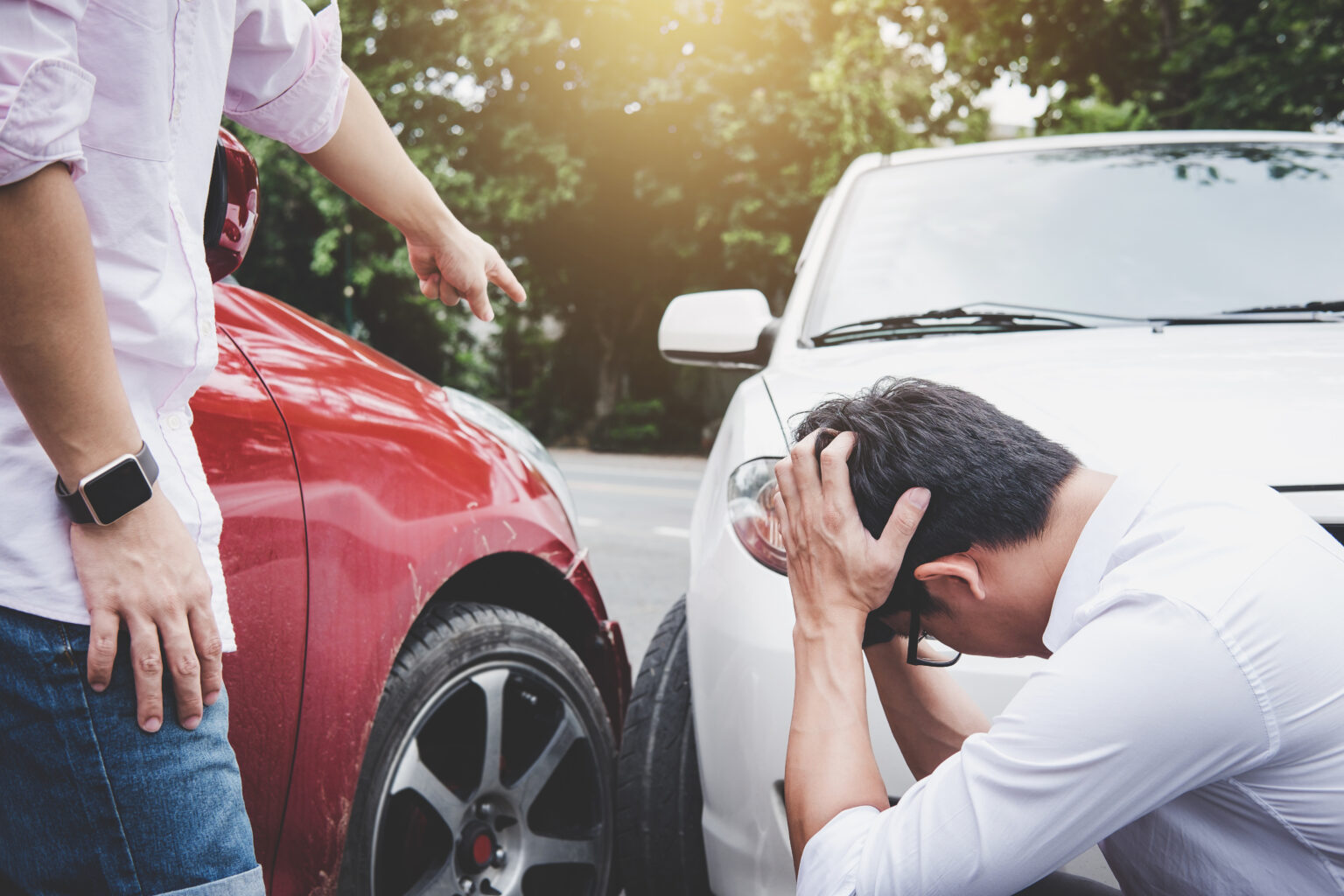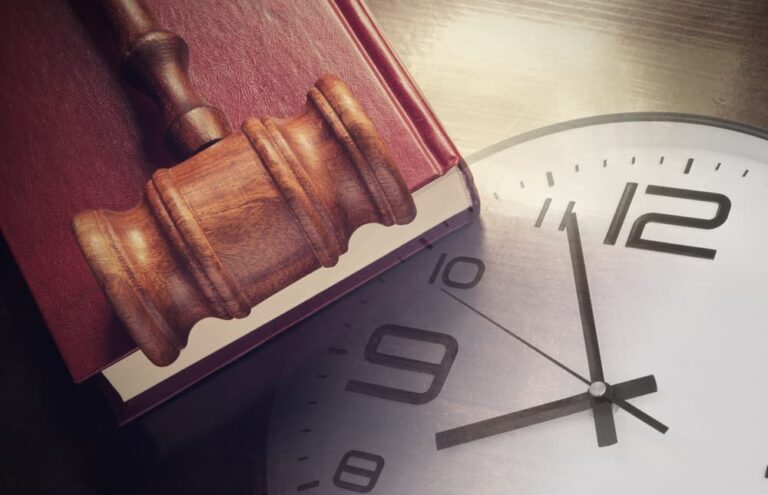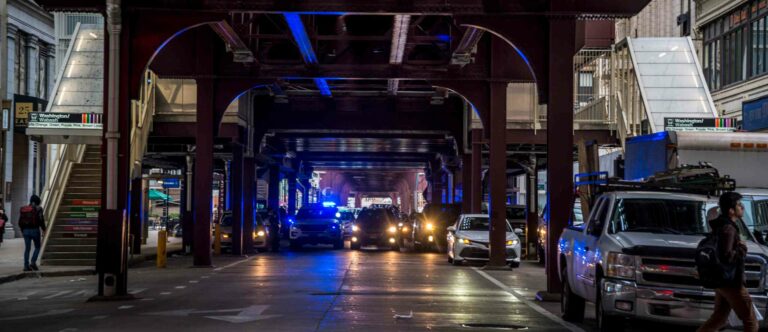That slight bump in the parking lot of a Mariano’s, the gentle tap from the car behind you on the I-90, or a minor scrape while navigating a tight spot in a downtown garage can leave you rattled and confused.
You might be tempted to wave it off, exchange a quick apology, and drive away, thinking it was “just a fender bender.” But the big question you may ask is, does a fender bender count as an accident?
The straightforward answer is yes. In the eyes of the law and insurance companies, any collision involving a motor vehicle, no matter how small, is considered an accident. Speaking with a Chicago car accident lawyer can help you understand your responsibilities, ensure your rights are protected, and guide you through the aftermath—even if the damage seems minor.
Dismissing it as insignificant can sometimes lead to unexpected complications down the road.
- Any event where a vehicle makes contact with another vehicle, person, or object, causing any amount of damage, is an accident.
- Even if no visible injuries are at the scene, symptoms can appear days or weeks later.
- Minor-looking vehicle damage can often hide more serious and expensive structural problems underneath the bumper.
What Legally Defines a Fender Bender as an Accident in Illinois?
In Illinois, the law does not really distinguish between a “fender bender” and a more serious crash. The Illinois Vehicle Code defines an accident as any event involving one or more motor vehicles that results in property damage, injury, or death.
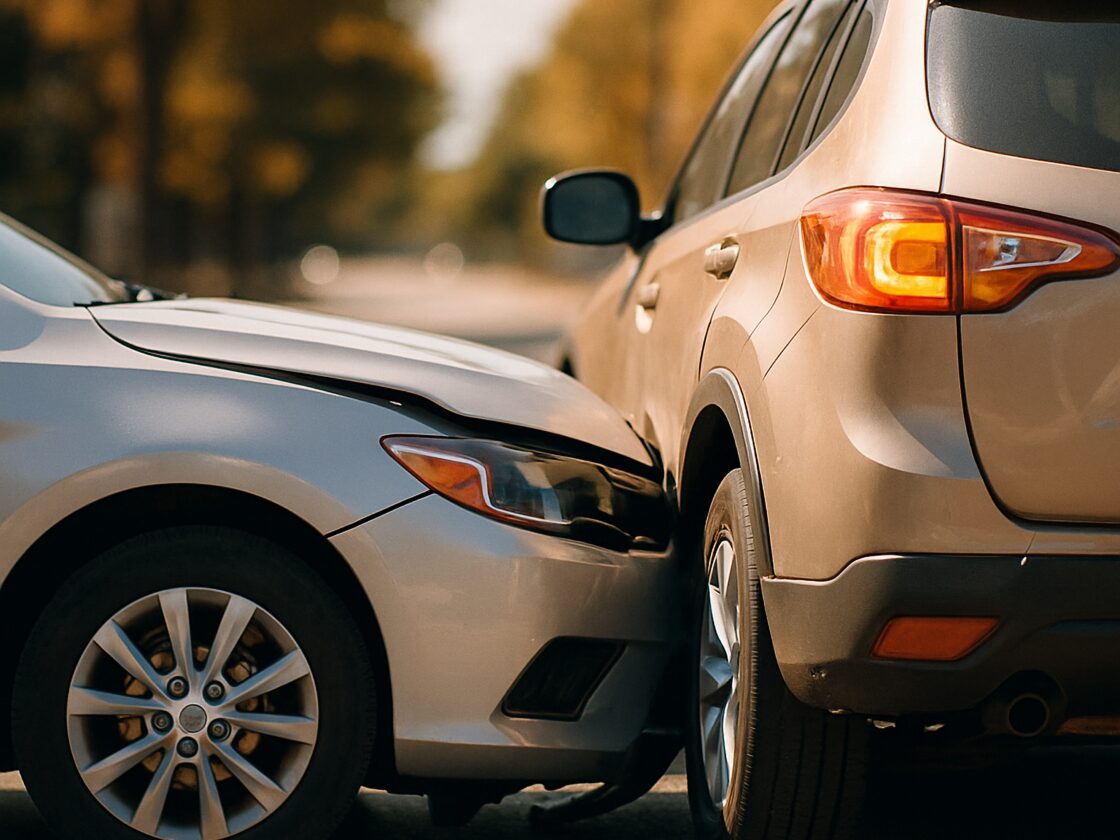
The term “fender bender” is just a casual phrase to describe a collision that appears minor at first glance. However, its legal standing as an accident is clear, and certain obligations come with it.
You are legally required to file a crash report with the Illinois State Police if the accident caused an injury or death, or if there was more than $1,500 in property damage. This threshold can be surprisingly easy to meet.
A modern bumper with built-in sensors can cost thousands to repair, even from a low-speed impact.
- Property Damage: A tiny scratch, a cracked taillight, or a dented bumper all qualify as property damage, making the event an official accident.
- Reporting Requirement: Failing to report a qualifying accident can lead to legal penalties, including the suspension of your driver’s license.
- No “Minor” Exception: The law provides no special exception for collisions you might consider minor. An accident is an accident.
The Hidden Dangers of a “Minor” Collision
One of the biggest mistakes people make after a seemingly small crash is assuming everything is fine. The adrenaline and shock of the moment can easily mask both physical pain and the true extent of vehicle damage.
What feels like a simple bump near Millennium Park could have consequences that are not immediately obvious. Physically, the force of a vehicle being struck, even at low speeds, can jolt the body violently.
This can lead to soft tissue injuries, which are injuries to muscles, ligaments, and tendons. Whiplash is a common example, where the head and neck are snapped back and forth. You might walk away feeling okay, only to wake up the next day with severe neck pain, stiffness, and headaches.
- Delayed Pain: It is very common for pain and other symptoms from injuries like whiplash or back strain to be delayed by 24 to 48 hours.
- Hidden Vehicle Damage: A perfectly fine-looking bumper could be hiding a bent frame, cracked radiator supports, or damaged parking sensors, all of which are costly to fix.
- Aggravated Conditions: A minor jolt can worsen a pre-existing condition, like a bad back or a sensitive joint, turning a manageable issue into a chronic problem.
Does a Fender Bender Count as an Accident on Your Driving Record?
This is a common worry. The answer depends on a few factors. A fender bender will most likely appear on your driving record if a police report was filed and you were determined to be at-fault for the accident.
An at-fault designation means you were deemed legally responsible for causing the collision.
An insurance company will also keep an internal record of the incident if a claim is filed, which can impact your premiums regardless of whether it shows up on your official state driving record.
The accident can still be part of your claims history with insurance providers even if you were not at fault. This history can be used by insurers to assess your risk level and set your rates in the future.
- Police Reports: If police responded and filed a report citing you for a traffic violation connected to the accident, it is very likely to go on your record.
- Insurance Claims: When you or the other driver file a claim, the insurance companies record the event. This claim history follows you and can lead to higher insurance costs, even for a “no-fault” fender bender.
- “Handshake” Deals: If no police report is filed and no insurance claim is made, the accident will likely not appear on any official record. However, as discussed, this approach carries its own set of significant risks.
Navigating Insurance Claims After a Seemingly Small Crash
Deciding to file an insurance claim can feel like a big step, but it is the reason you pay for insurance coverage. A claim is simply a formal request you make to an insurance company to pay for damages or injuries covered by your policy.
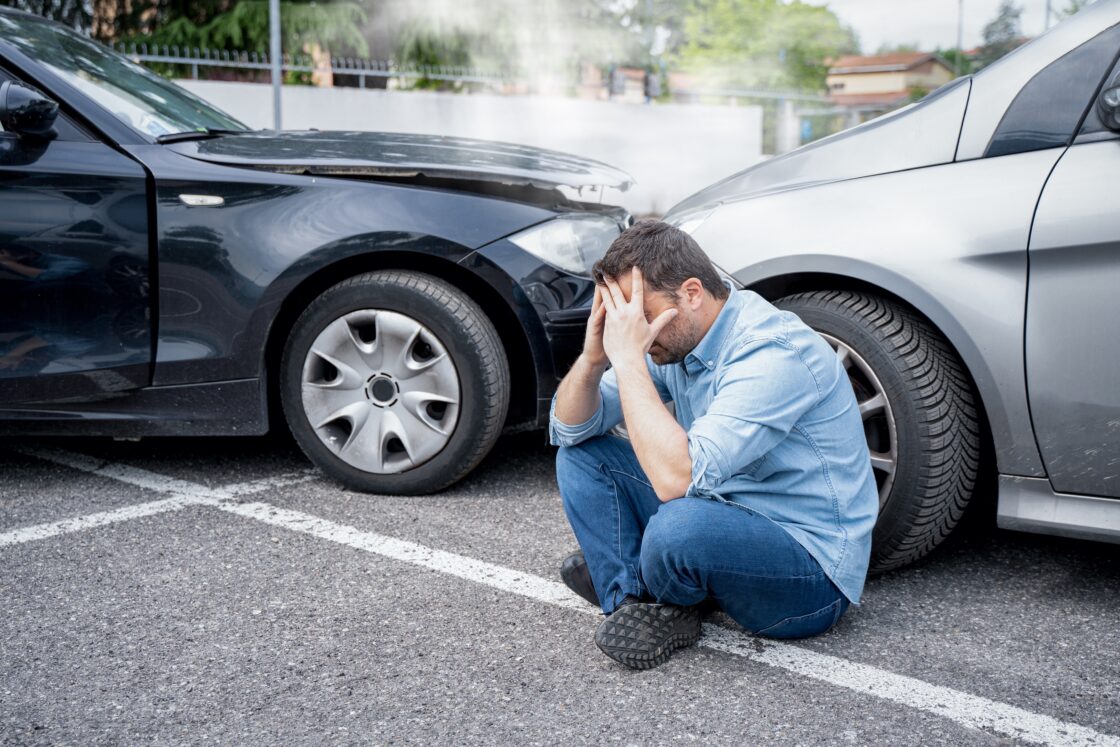
After a fender bender, you will typically be dealing with either the other driver’s insurance company (if they were at-fault) or your own. The process usually starts with you reporting the accident to the appropriate insurer.
They will assign a claims adjuster to investigate the incident. The adjuster’s job is to evaluate the damage, determine fault, and decide how much the insurance company should pay.
Be aware that the adjuster works for the insurance company, and their goal is often to resolve the claim for the lowest possible amount.
- Report Promptly: Contact your insurance company to inform them of the accident, even if you are not sure you will file a claim. Many policies have rules about timely reporting.
- Stick to the Facts: When speaking with an adjuster, provide clear, factual answers. Avoid guessing, admitting fault, or downplaying potential injuries. Simply state what happened.
- Understand Low Offers: The first offer from an insurance company, especially for vehicle damage or a minor injury, may be lower than what you are entitled to.
What if the Other Driver Doesn’t Want to Report the Fender Bender?
It happens all the time. After a minor collision, the other driver might be very persuasive, suggesting you handle it “man-to-man” with cash to avoid involving insurance.
They might say their rates will increase or the damage is too minor to report. While this can seem like an easy way out of a stressful situation, these private arrangements can easily backfire.
Without an official record like a police report or an insurance claim, you have no proof of what actually happened. The other driver could leave the scene and later file a claim against you, alleging you caused a hit-and-run.
They could also take your cash and then claim you never paid them or that their vehicle needs far more expensive repairs. In this situation, you are left in a “your word against theirs” situation with little to protect you.
- Risk of a Changed Story: The other driver could later claim the accident was your fault or that they were seriously injured, leaving you to defend yourself without any official documentation.
- Unforeseen Damage: You might accept a few hundred dollars for a scuffed bumper, only to have a mechanic find a bent frame underneath, costing thousands to repair. You will have no way to seek further compensation.
- Loss of Legal Protection: A police report and an insurance claim create a formal record of the incident. This powerful record protects you from false accusations and provides a clear path for resolving disputes.
Long-Term Consequences You Might Not Expect
The effects of a fender bender can linger long after the dents are fixed. For some, a “minor” injury can become chronic. For others, the financial fallout extends beyond the initial repair bill.
One of the most overlooked consequences is the diminished value of your vehicle. This is the loss in a car’s resale value simply because it has been in an accident. Even if your car is repaired ideally to look and drive like new, its accident history will lower its value on the market.
Buyers are less willing to pay top dollar for a vehicle that has been in a crash.
- Chronic Pain: An untreated soft tissue injury can lead to ongoing issues like chronic headaches, neck and back pain, and reduced mobility that can affect your quality of life for years.
- Financial Strain: Beyond diminished value, your insurance premiums may increase for several years following an at-fault accident, costing you hundreds or thousands of dollars over time.
- Emotional Toll: The stress of an accident, dealing with insurance companies, and managing repairs or injuries can cause significant anxiety and emotional distress, even from an event that seemed small initially.
Piecing Things Together After a Minor Collision
Does a fender bender count as an accident? Absolutely. From the busy streets of the Loop to the quiet cul-de-sacs in the suburbs, any collision is a real accident with the potential for real consequences.

Treating every incident with care by documenting the facts, being mindful of delayed injuries, and understanding your options is the best way to move forward. The initial moments after a crash are confusing, but the steps you take in the hours and days that follow can shape the outcome significantly.
Navigating the aftermath of a car accident, even a seemingly minor one, can be overwhelming. You may be facing vehicle repairs, dealing with insurance adjusters, and recovering from an injury you did not expect.
If you feel lost, know you do not have to handle it alone. The Chicago personal injury attorneys at Walner Law are here to listen to your story and discuss your situation. We can help you understand your options and the path ahead.
For a conversation about your experience, please call us in Chicago at (312) 410-8496.
Frequently Asked Questions About Fender Benders
Do I have to call the police for a fender bender in Chicago?
In Illinois, you are required to report an accident to the police if it involves an injury or death. You must also file a report if there is over $1,500 in property damage. Since it can be hard to estimate repair costs at the scene, calling the police to create a report is often a good practice to protect yourself.
What if I feel fine right after the accident but have pain a few days later?
This is very common. The body’s release of adrenaline can mask pain immediately after a crash. If you start to experience pain, stiffness, headaches, or other symptoms later, you should seek a medical evaluation right away. It is also a good idea to notify the insurance company that you are now experiencing symptoms related to the accident.
Will my insurance rates definitely go up after a fender bender?
Not necessarily, but it is a strong possibility, especially if you were at fault. Many factors influence insurance rates, including your driving record, the severity of the claim, and your specific insurance provider’s policies. Some insurers offer “accident forgiveness” for a first minor accident, but a claim of any kind can still impact your premium upon renewal.
What is a “soft tissue injury”?
A soft tissue injury is damage to the body’s connective tissues, such as muscles, ligaments, and tendons. It is not a bone fracture. Whiplash, strains, and sprains are the most common types of soft tissue injuries suffered in car accidents, including fender benders. They can cause significant pain and limit your movement.


 Skip to content
Skip to content

